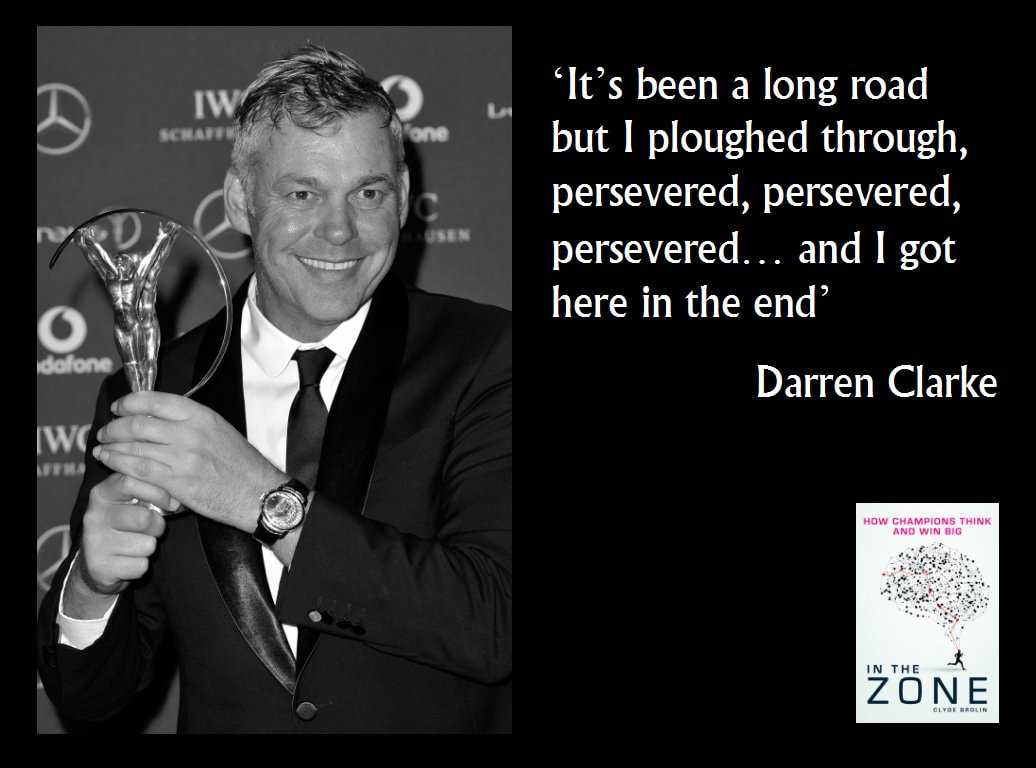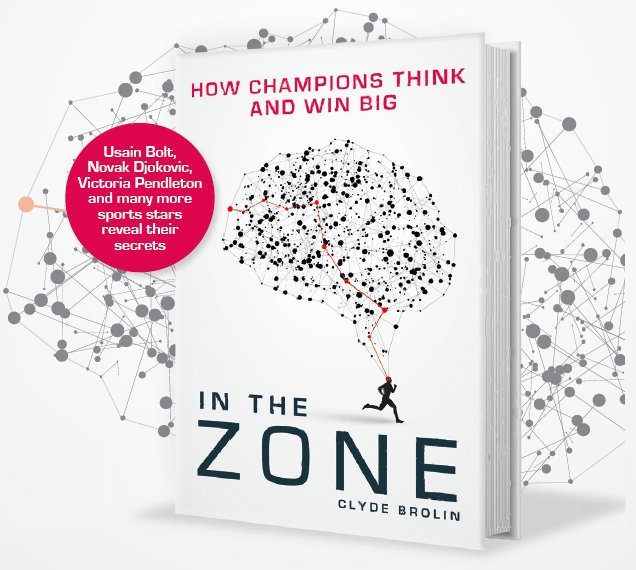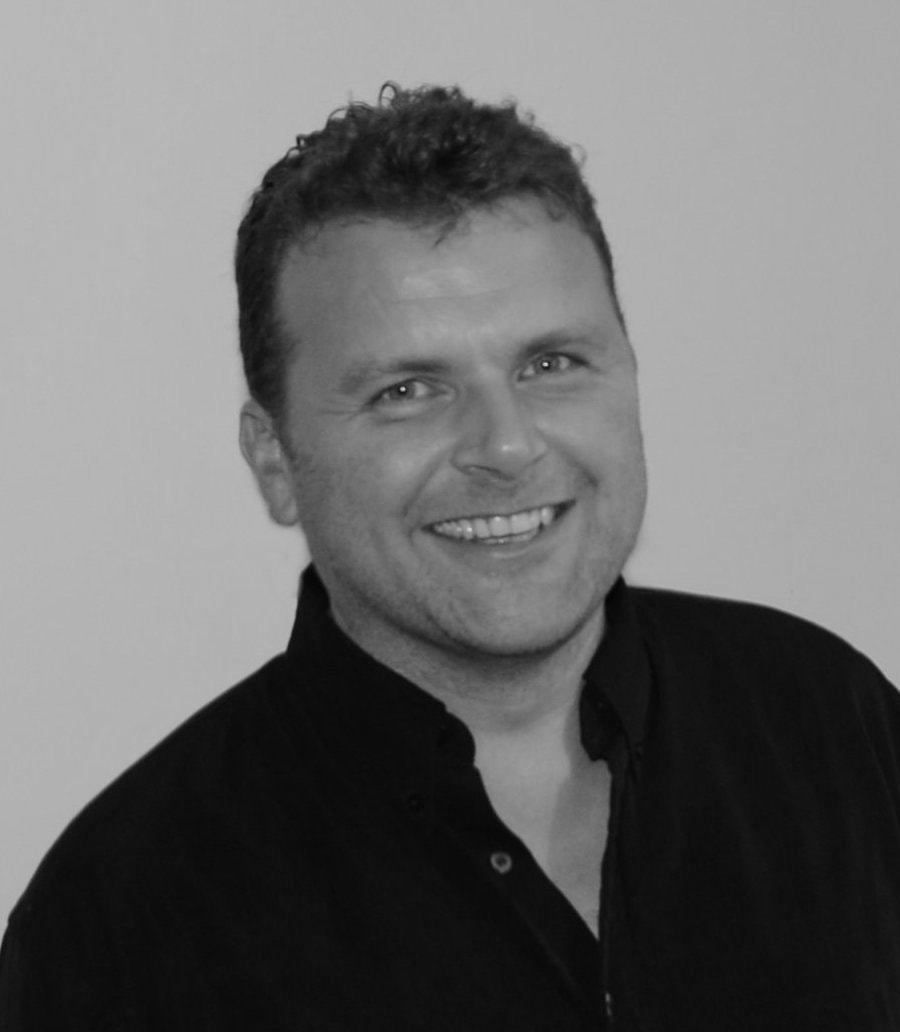|
Peak performance really starts with ‘beginner’s luck’. If there’s nothing to compare ourselves with, we can forget all about results and just enjoy ourselves, like children. Even if we have only minimal technical ability, to use all of it unhindered can work better than having the skill but a blockage in how to access it. The jams begin as we improve and build up expectations, both our own and those we perceive in others.
Golf is a classic example of how a little knowledge can be a dangerous thing: when I first picked up a club my only exposure came from watching the greats on television. Their expertise had wedged itself into my head and my swing was initially easy, the ball regularly sailing straight down the middle. What was all the fuss about? Then I had a few lessons – but not enough – and started thinking about grip and stance, inhibiting whatever natural flow I’d had. It was downhill all the way. After a literal low point where I could no longer get the ball off the ground, I gave up. I’m not alone. A world champion from another sport put it beautifully: ‘I’d go round in 100 shots, of which 99 were crap and one was good. If 99 pints tasted awful and one tasted good you wouldn’t drink, would you?’ With perseverance I may have broken through to the other side – until the next stumble. Everyone endures such lows but the stars find the inner resources to force their way beyond all the moments when their ability seems to plateau or, worse, dip. No matter what, they never, ever quit. In a world that worships winners, for the perfect storyline Hollywood might suggest a sportsman should save their day of days for the very end of their career, preferably a stunning victory out of nowhere on the day they retire. But that overlooks one minor plot detail: a couple of decades of torment as the universal acceptance that your chance has gone reaches a point where even friends and family look upon your continued efforts with the kind of bemused pity normally reserved for a caged animal determined to gnaw their way out. As Northern Ireland’s Darren Clarke limbered up for his 20th attempt to win golf’s Open Championship in 2011 – eight years ago today – he was about to surprise his doubters. In atrocious weather, the 150-1 shot walked calmly through the storms. He led into the final day and while others faltered he sauntered to glory by three shots – at the age of 42. ‘I still don’t know how I managed to do it,’ Clarke told me for In The Zone. ‘But that week I was very calm and collected. For that final round it was as if it was my time. I played well but also got a couple of good bounces and breaks. I’d served my apprenticeship and it was given to me. That’s the way sport goes, isn’t it? You need to get the breaks to win. But it’s not as if I came out of the blue. I’d won 20 times around the world including a tournament in Arizona two months earlier. It’s been a long road and it was great to be able to plough through, persevere, persevere, persevere… and I got here in the end. The support and love the people showed me walking down the 18th was even more special. It wasn’t just the roar, it was the compassion.’ Clarke had indeed been through way more than the average sportsman, having lost his wife Heather to breast cancer five years earlier. Hitting a ball into a hole pales into irrelevance by comparison. Nonetheless he’d already earned one early moment of redemption just six weeks later as he won all three of his matches in the Ryder Cup at the K Club. After that Clarke’s form disintegrated again and before his Open triumph he hadn’t finished in the top ten at a major for ten years. Even then his self-confidence never deserted him. It helped that top golf psychologist Bob Rotella kept reminding Clarke about what he terms ‘unconscious putting’. The key is to create a clear picture of the desired outcome, then let all fear of failure go and trust the natural skills honed over the years of practice. Don’t think, don’t fret, don’t try, just do. Sound familiar? ‘In my heart of hearts did I think I was good enough? Yes, of course I did,’ he adds. ‘I had no doubt in my mind and I knew 100 percent I had the game to win. Did I know I was going to win? No, but that’s slightly different. Still, I do scratch my head at how it has all turned out. The K Club was wonderful and the Open even more so. I’ve had a difficult time in my personal life but the world of sport gives and it takes. It’s taken from me in many different ways and it’s given me an awful lot back as well. I’ve got to be grateful for what the game has given me. ‘Challenges are in front of everybody, whatever walk of life they’re in. If you give in that’s not the way forward. You’ve got to battle on and sometimes good comes out of bad. I’m a good example of that. You have to get through the bad times to get to the good times. Certainly I went through the bad and eventually came to an awful lot of good that’s coming to me now.’ Tomorrow morning at 6.35am Clarke, now 50, will hit the first shot at Royal Portrush in the first Open championship to be held in Northern Ireland for 68 years. A victory might be even less likely this time, but something tells me he won’t care a jot. This is an extract from In The Zone: How Champions Think and Win Big
0 Comments
|
AuthorClyde Brolin spent over a decade working in F1 before moving on to the wider world of sport - all in a bid to discover the untapped power of the human mind. Archives
October 2024
Categories
All
|




 RSS Feed
RSS Feed

